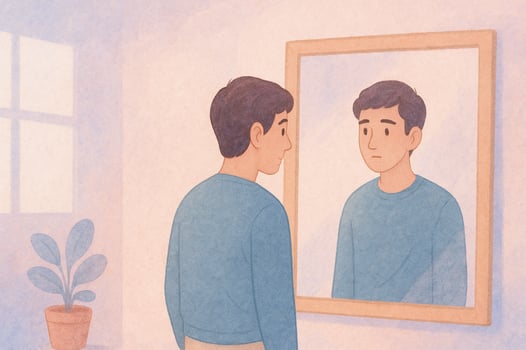If You Don’t Like Your Enneagram Type, That’s Okay
Erick Sebastian Quimbayo
3/5/20252 min read


I’ve mentioned before that when I first read the Enneagram description and realized I was a Type 9, I felt resistance toward it.
I think it was particularly because a Nine’s superpowers are not generally praised — at least not on this side of the world.
Being calm and valuing unity aren’t qualities that tend to be celebrated in men. For a long time, I longed to be, for instance, the unique, melodramatic Four, or the reckless and spontaneous Seven.
Something with flavor, I thought. Something more interesting.
I think a lot of people go through similar experiences when they take the test for the first time. Discovering your Enneagram type can be hurtful. Sometimes it touches sensitive edges and confronts us with difficult truths — truths we’d rather keep hidden.
The Enneagram rarely tells you something nice about your personality. Instead, it shows you the patterns you’ve used your whole life to survive… even when those patterns are now holding you back.
I felt like I could finally embrace my Nineness (is “Nineness” a word?) when I realized the Enneagram isn’t a tag I have to carry around.
A Nine is not who I am. It’s who I taught myself to be, in order to survive.
It’s not here to put me in a box — it shows me the box I’m already in. And the most beautiful thing is that it also teaches me how to get out of it.
I hope people aren’t embracing the less healthy parts of their Enneagram type and shrugging them off with, “That’s just how I am; I can’t change.” Instead, I hope we all recognize that these patterns exist to help us feel secure, loved, and appreciated — but they can also limit our experience of life.
They’re survival mechanisms.
Throughout my journey with the Enneagram, I came to understand that the discomfort I felt when I first discovered my type was actually a sign of how accurate the results were. It’s okay if it hurts. After all, it’s your trauma being unfolded.
If you don’t like your Enneagram type, that’s okay. That might actually be a good thing.
Maybe it means you’re ready to question your automatic behaviors — or maybe it means you’ve already outgrown them.
It doesn’t mean you’re wrong.
It means you’ve started looking more closely inside.
